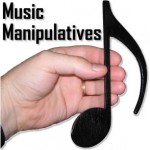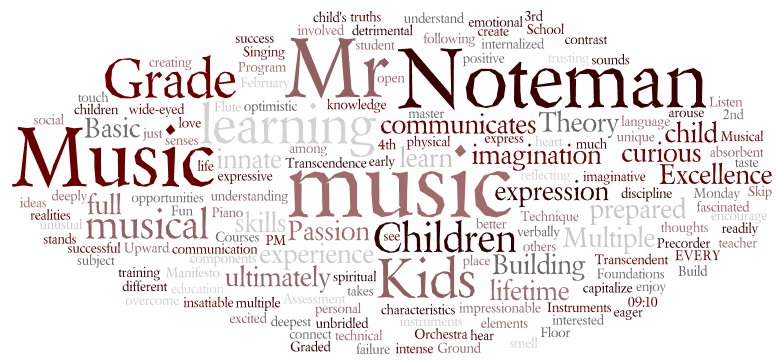This post addresses the first point of the Mr. Noteman Manifesto, which states: 1. EVERY child can learn to connect with God, himself and others through music.
Former New York Teacher of the Year John Gatto, in his book The Underground History of American Education, discusses the fact that practically everyone in the United States learns to drive an automobile. We as a culture do not see anything extraordinary in the fact that average people are given the right and responsibility of piloting a couple of tons of metal, containing fuel that has the explosive capacity of three sticks of dynamite, through the neighborhoods and streets of our cities. In other words, despite what we have been trained to think of personal limitations, we are all very much capable of developing complex skills and can learn to perform extraordinary tasks, given the appropriate freedoms and motivations.
I believe that the subject of music is no different. All children, practically without exception, are very much capable of learning to understand how music works, are able to sing on pitch, and can learn to appreciate and perform music in a competent manner. Actually, the younger the better! As children grow older in our culture they develop the limiting mentality that learning certain things is hopeless, or, even worse, boring! This is caused, I believe, primarily by their constant exposure to teaching methods based on the outdated concept of creating industrial drones, training children to perform menial, degrading tasks over and over to receive ethereal, non-substantial rewards.
Teaching that reaches children must be based on THEIR perceptions, and by fanning the flames of their NATURAL CURIOSITY to experience, explore, and create. The teacher that has a firm grasp of fundamental musical concepts, and also of the incredible learning styles of small children can very easily teach complex musical skills, such as reading rhythm notation, singing on pitch, and even sight singing skills. Some music teachers even go so far as to say that young people can be taught to develop the skill of absolute pitch, sometimes called perfect pitch!
The point, of course, of these musical skills is to allow children to connect with God, themselves and others. Music is a form of communication, and in it’s idealized form, allows one person to transfer thoughts, ideas, feelings, and concepts to another. Music truly is a “universal language,” communicating even on levels deeper than our conscious understanding. And children have a very keen, innate understanding of the types of communication going on in music. Try asking a small child, for example, to communicate the idea of an angry lion on a piano keyboard! You will get the idea quickly!
No, musical skills are not out of reach of any normal child. Music is not the domain of only the “gifted” or “talented.”



